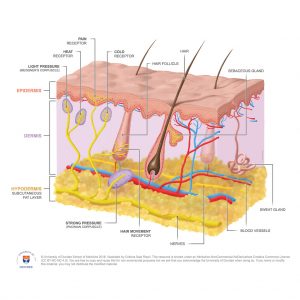True anti-aging products work by delivering actives to the deeper layers of the skin, and not simply moisturizing it. Let’s take a look at the top actives available, but first, let’s look at the science behind the skin’s absorption of nutrients.

Of all the many Vitamins, only Vitamin A and Vitamin C can penetrate the skin’s upper layers, and reach the deeper cells which produce collagen, which is what keeps skin firm and youthful. (https://www.ncbi.nlm.nih.gov/
1) Once the Vitamin C is absorbed into the skin cells, the production of collagen, increases up to 8 times. This has been proven by the medical community of dermatologists.
How Do I know Which Serums to Trust?
 For example, Guava Seed Oil, and Broccoli Seed Oil, contain bio-available forms of Vitamin A, C and E, in an unheated, unadulterated form.
For example, Guava Seed Oil, and Broccoli Seed Oil, contain bio-available forms of Vitamin A, C and E, in an unheated, unadulterated form.  Goji Berry Seed Oil, contains 500 times more Vitamin C than found in oranges.
Goji Berry Seed Oil, contains 500 times more Vitamin C than found in oranges.
 Some Vitamin C serums have claims to contain these natural plant oils, like Sea Buckthorn Oil, which contains a Vitamin C content 12 times higher than oranges.
Some Vitamin C serums have claims to contain these natural plant oils, like Sea Buckthorn Oil, which contains a Vitamin C content 12 times higher than oranges.“Vitamin C, which is an ingredient in many serums, has been extensively studied. Janice Rosenthal who is the owner of Garden of Essences explained to me, “Once vitamin C is absorbed into the skin cells, the production of collagen increases up to eight times.” Additionally, Rosenthal shared that according to a government study, “Vitamin C also reduces melanin production, which in turn, reduces age spots and pigmentation.”
Vitamin C can be derived form natural sources such as fruits and vegetables, but it can also be made synthetically. Rosenthal revealed, “Many expensive serums contain the cheapest, least effective form of vitamin C, ascorbic acid, which are largely man-made in a laboratory. That is why using a plant oil will always be superior, because natural vitamin C will be vastly more effective.”
Rosenthal also told me that not all vitamin C is created equally. “Some vitamin C serums have claims to contain these natural plant oils, like sea buckthorn oil which contains a vitamin C content 12 times higher than oranges, but that does not compare to goji berry seed oil, which contains 500 times more vitamin C than found in oranges. And secondly, if the serum’s ingredients do not state what percentage of sea buckthorn oil it contains, you could be applying a filler of 90 percent sunflower oil to your face!”